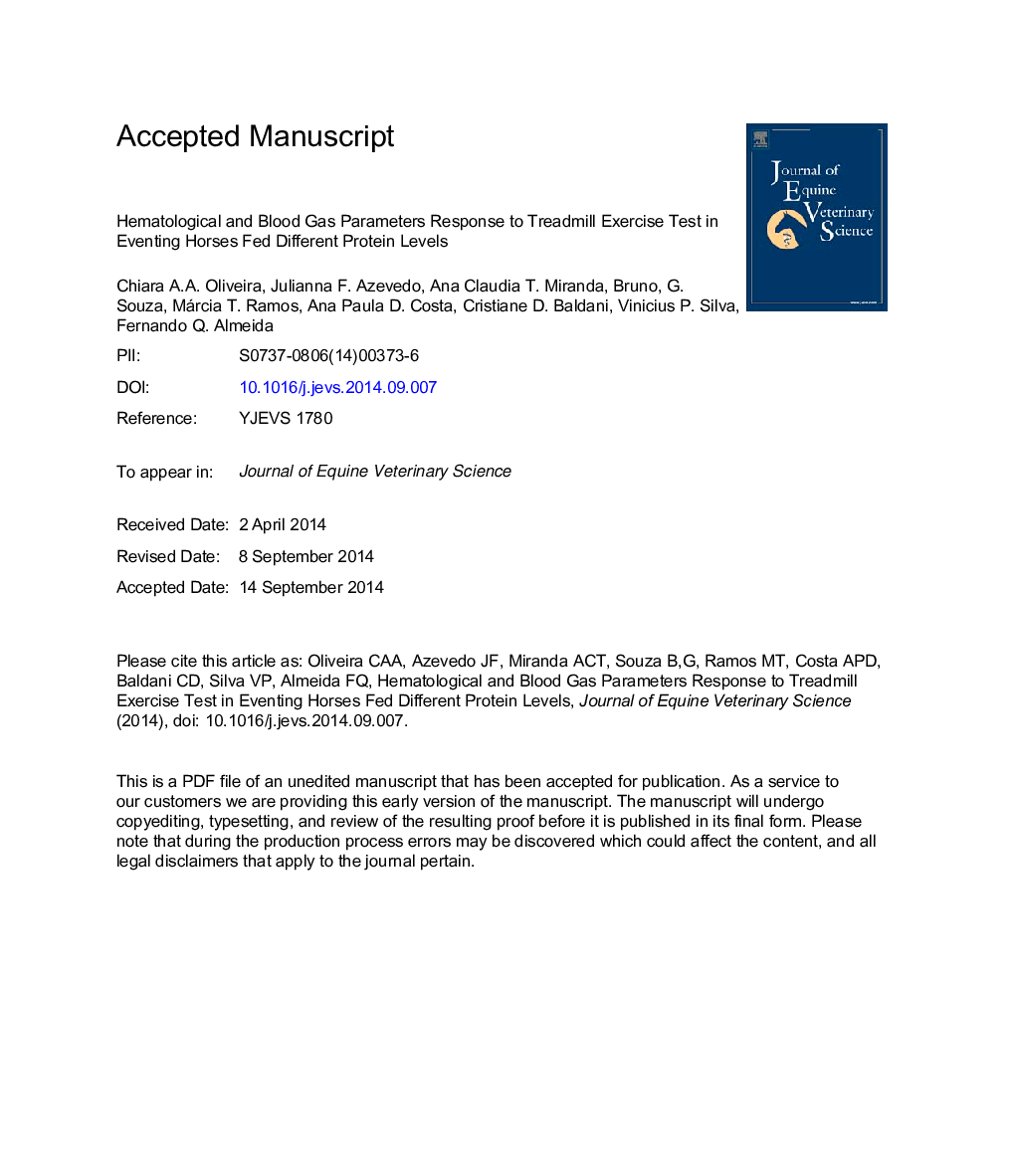| Article ID | Journal | Published Year | Pages | File Type |
|---|---|---|---|---|
| 8483620 | Journal of Equine Veterinary Science | 2014 | 27 Pages |
Abstract
The aim of this study was to investigate the responses to exercise in athletic horses fed different protein levels. Twenty-four Brazilian Sport Horses (body weight [BW] between 432 and 560Â kg and body condition score [BCS] 5.0-5.5) undergoing eventing training were used. The experiment was a randomized design with four treatments (diets) and two exercise tests. Diets were composed of 7.5%, 9.0%, 11.0%, and 13.0% crude protein. The exercise tests consisted of a warm-up and galloping from 6.0Â m/s with speed increases every 1Â minute until 10Â m/s. Venous blood samples were collected at preprandial time, before, during, and after the exercise tests, and at the recovery time. Blood samples were analyzed for hematocrit, lactate, glucose, total plasma protein, serum aspartate aminotransferase, creatine kinase, lactate dehydrogenase, urea, uric acid, creatinine, serum Clâ, and venous blood gas. The results were analyzed using a split-plot design, and regression analyses were performed. There were no differences in BW and BCS. The protein levels did not affect the variables VL2, VL4, V150, and V200. Serum urea and uric acid concentrations were affected by protein diet levels. After the exercise tests, the blood pH, acid-base, and electrolyte balance of the horses were not affected by the protein of the diets. The protein diet levels did not affect the horses' performance variables. At the same time, high protein concentrations in the diet can alter the acid-base balance in athletic horses and should be used with caution.
Related Topics
Life Sciences
Agricultural and Biological Sciences
Animal Science and Zoology
Authors
Chiara A.A. PhD, Julianna F. MS, Ana Claudia T. MS, Bruno G. MS, Márcia T. MS, Ana Paula D. PhD, Cristiane D. PhD, Vinicius P. PhD, Fernando Q. PhD,
